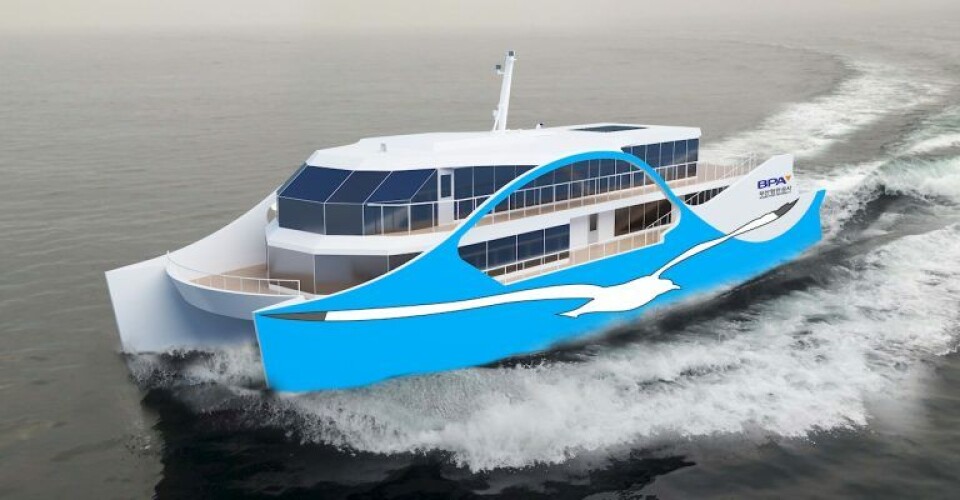South Korea’s first domestic all-electric passenger ferry

Swiss technology company ABB has contracted with Haemin Heavy Industries shipyard on this.
By Vikram Malik, Maritime Direct India Correspondent
South Korea’s Busan Port Authority will see its first all-electric, zero-emissions ferry, thanks to a collaboration between ABB and Haemin Heavy Industries shipyard. This will be a 40-meter catamaran with capacity for 100 passengers and five crew members. Operating between Busan’s North and South ports, the return journey is expected to take an hour, given the vessel’s average operating speeds of about 13 knots or 24 kmh.
ABB is due to deliver an end-to-end electric power and propulsion solution on the project. Moreover, once operational, ABB will also provide remote monitoring and support through its global network of ABB Ability Collaborative Operations Centers.
Powering the ferry will be two 1,068-kWh battery packs, capable of allowing the vessel to complete up to four return journeys, before having to recharge.
This ferry project represents South Korea’s first step towards eventually phasing out 140 of its conventionally powered vessels with cleaner options by 2030. This, in turn, is part of the country’s larger goal of achieving net-zero emissions by 2050.
Given the volume of ferries worldwide – with estimates from Interferry suggesting that they transport over two billion passengers annually, electrification is considered a vital solution towards a reduction in emissions. Data from the Maritime Battery Forum confirms 130 battery-powered ferries to be operational worldwide, with another 90 in the pipeline.










